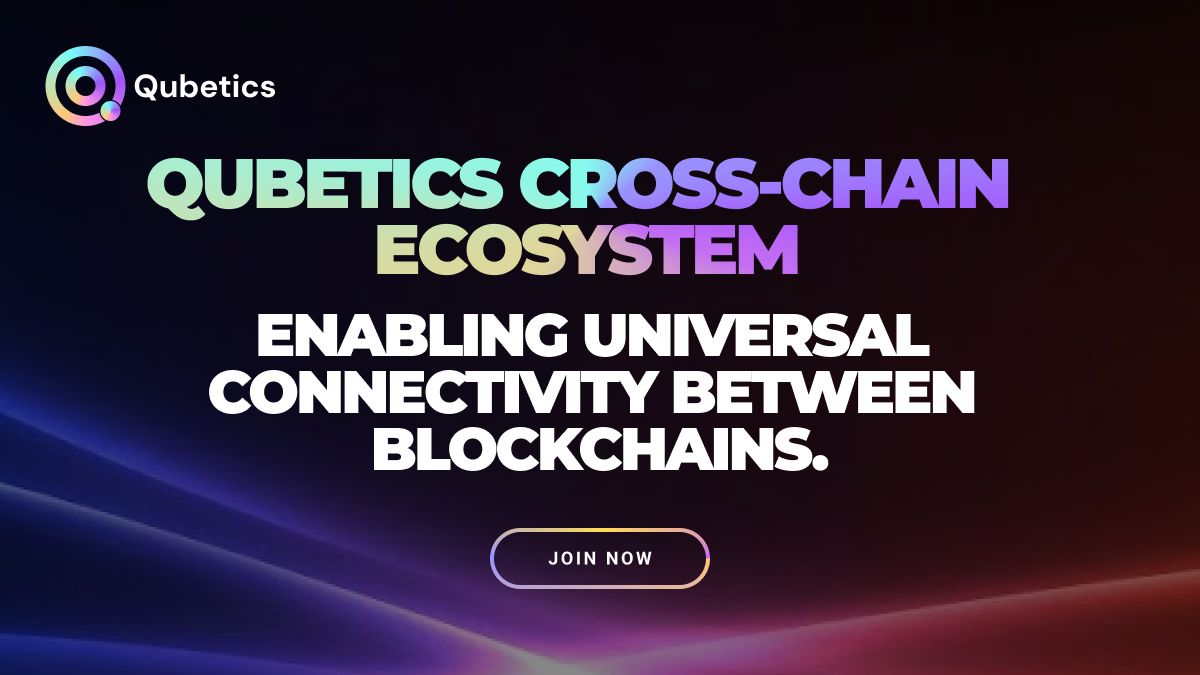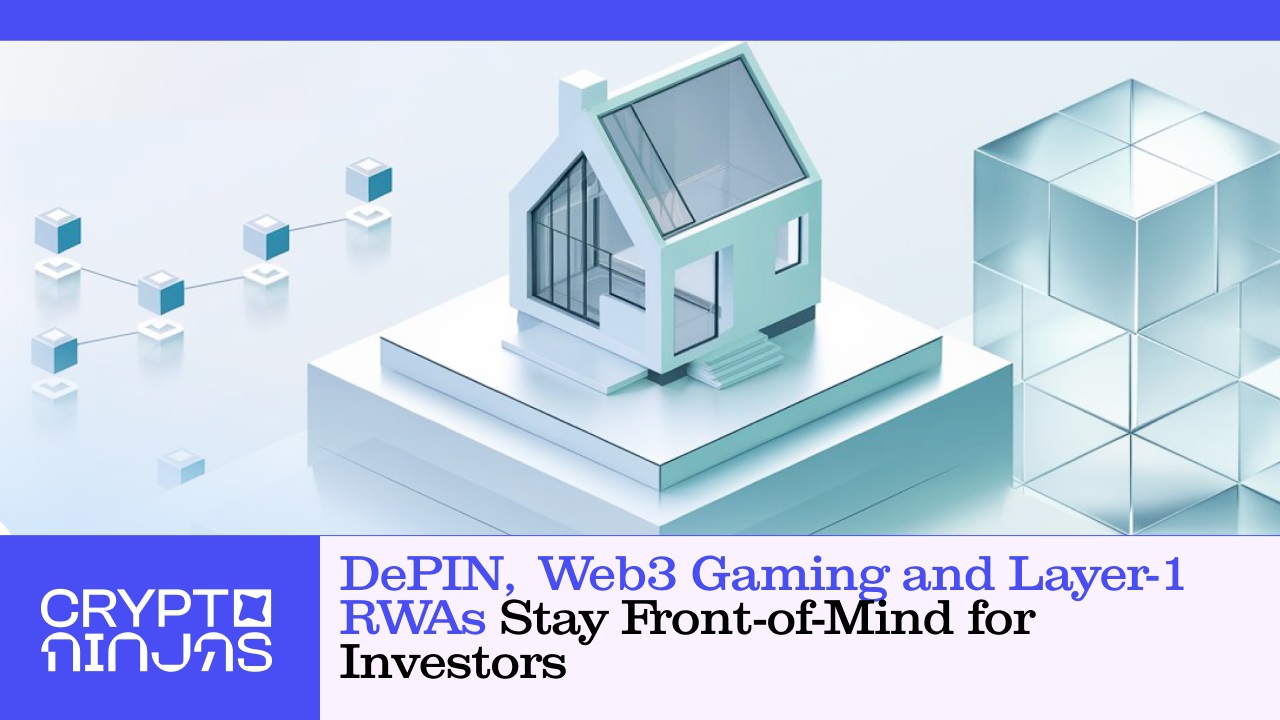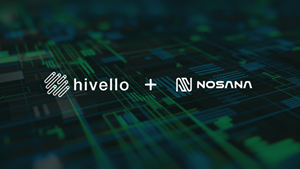Latest DePIN Funding News

3 months ago
Hivello Integrates Nosana to Enhance Passive Income Opportunities
Blockmate Ventures has announced a significant integration between its investee, Hivello Holdings, and the Nosana network, aimed at enhancing passive income opportunities for users. This collaboration focuses on utilizing GPU-based compute resources, which are in high demand for Artificial Intelligence (AI) and software development. Nosana is recognized as one of the leading platforms in the Decentralized Physical Infrastructure Networks (DePIN) space, allowing Hivello users to contribute their idle GPU power to a decentralized ecosystem. This partnership is expected to increase GPU node participation and provide users with automated earning opportunities through compute aggregation.
According to Domenic Carosa, Co-Founder and Chairman of Hivello, this integration marks a pivotal step towards making GPU-powered computing more accessible and rewarding. The partnership with Nosana not only enhances earning potential for users but also supports the growth of decentralized infrastructure. As generative AI applications continue to gain traction, the demand for decentralized GPU power is expected to rise, making this integration timely and beneficial for Hivello users seeking higher yields from their GPU resources.
The integration with Nosana is set to create a new passive income stream for GPU owners, further positioning Hivello within the expanding AI infrastructure market. With the automated compute aggregation capabilities now enhanced, users can easily connect their idle GPU power and maximize their earnings while contributing to the infrastructure that supports AI model training and software development. This strategic move aligns with Hivello's mission to simplify participation in DePIN networks, making it easier for anyone to earn passive income without needing extensive technical knowledge.

3 months ago
Innovations in Blockchain: Theta, Story (IP), and Qubetics Lead the Charge
The blockchain market is experiencing a surge of innovation, with projects like Theta, Story (IP), and Qubetics leading the charge. Theta has emerged as a significant player in the decentralized video delivery space, providing a solution for streaming giants looking to cut costs and improve quality by eliminating centralized servers. Its growing partnerships and positive price movements indicate a rising demand for decentralized content distribution, positioning Theta as a key player in the future of streaming.
On the other hand, Story (IP) is transforming the $15 trillion intellectual property management industry. By utilizing a blockchain-based framework, Story is modernizing the registration, monetization, and licensing of copyrights and trademarks. The platform automates payments and licensing through smart contracts, empowering creators and businesses with full control over their assets. This innovative approach addresses the traditional pain points in IP management, such as high legal fees and delayed royalty payments, making it a game-changer in the sector.
Meanwhile, Qubetics is set to revolutionize cross-border transactions with its blockchain-powered ecosystem. By addressing the inefficiencies of traditional international transfers, Qubetics offers instant, low-cost payments that eliminate hidden fees and banking restrictions. Its presale has already broken records, raising $14.6 million with over 495 million $TICS tokens sold. Analysts predict substantial returns on investment, making Qubetics one of the most promising crypto opportunities this year. As these projects continue to innovate, they are reshaping their respective industries and paving the way for a more decentralized future.

3 months ago
Verida Launches Beta for Privacy-Centric AI Platform
Verida has officially launched the beta version of its AI platform, marking a significant advancement in personal data privacy and user control. The Verida AI solution allows users to maintain ownership of their data while facilitating powerful AI integrations through secure and confidential APIs. With data fully encrypted on the Verida Network, users can confidently engage with AI applications, knowing their information remains private even during processing. This beta release is a pivotal step towards redefining user consent and driving innovation in AI technology.
Key features of the Verida AI beta include developer APIs that enable seamless integration of user-owned encrypted data into AI applications, enhancing personalization and contextualization. The platform emphasizes consent-based data access, allowing users to connect their personal data for AI inference while retaining full control over their information. The growing ecosystem of data connectors includes popular platforms like Google and Telegram, with more integrations planned. Additionally, the introduction of the “Connect Verida” button simplifies user authentication and data access, ensuring privacy-preserving personalization in AI experiences.
The Verida Token (VDA) underpins the platform, facilitating API requests and ensuring a sustainable ecosystem for developers. Verida is committed to fostering innovation through developer grants aimed at application integration and data connector development. By empowering users to take custody of their data, Verida aims to challenge the dominance of big tech in data ownership and monetization. This beta release not only enhances user control but also opens new avenues for creating hyper-personalized AI solutions without compromising individual privacy, heralding a new era of privacy-preserving AI technology.

3 months ago
Secured Finance to Launch US Dollar-Dominated Stablecoin in Filecoin Ecosystem
Secured Finance is set to launch a US dollar-dominated stablecoin, named USDFC, within the Filecoin ecosystem. This initiative is anticipated to enhance the financialization of interactions with Filecoin data, drawing parallels to the impact DAI had on Ethereum's decentralized finance (DeFi) markets. According to a recent report by 10X Research, the introduction of this stablecoin is expected to unlock significant value within the rapidly growing Web3 platform, Filecoin, which is already witnessing high-level support from various foundations and an expanding list of ecosystem partners.
The 10X Research report highlights several benefits that the USDFC stablecoin could bring to the Filecoin ecosystem. Firstly, it aims to increase user adoption by providing an on-chain reserve stablecoin, making the platform more accessible to a broader audience. Additionally, it promises enhanced liquidity and stability by allowing users to transact in US dollars instead of FIL tokens. This shift could open up a universe of opportunities for users, enabling them to engage in loop trading, carry trades, and fixed-income instruments within the Filecoin network.
Masa Kikuchi, CEO of Secured Finance, expressed optimism about the potential of the Filecoin ecosystem, stating that enabling transactions in US dollars could lead to rapid growth and innovation. The success of USDFC could mirror the trajectory of DAI, which saw its backing ETH tokens grow to over seven billion dollars within two years of its launch. If USDFC achieves similar success, it could significantly alter the landscape for the Filecoin project and its community, paving the way for a new era of decentralized finance within the platform.

3 months ago
Roam to Launch $ROAM Token with Major Airdrop on Eight Exchanges
On March 6, 2025, Roam, the leading decentralized wireless network, is set to launch its $ROAM token for spot trading on eight major cryptocurrency exchanges, including Bybit, Bitget, and KuCoin. This launch will be accompanied by a significant airdrop campaign, distributing a total of 6 million $ROAM tokens to users across these platforms. The trading pair ROAM/USDT will go live at 10:00 UTC, with various incentives for early adopters, such as trading rewards and bonuses for new users. Each exchange has unique offerings, including deposit rewards and trading competitions, creating a competitive environment for users to engage with the new token.
Roam's tokenomics are designed for stability and long-term growth, with a total supply of 1 billion $ROAM tokens. The distribution includes allocations for the team, investors, and mining rewards. Notably, the token follows an exponential decay release model similar to Bitcoin, ensuring a controlled supply over time. Additionally, Roam has introduced a pilot burn mechanism to enhance community engagement and token scarcity, which has already seen a significant portion of points burned shortly after its launch.
As a pioneer in the decentralized physical infrastructure network (DePIN) sector, Roam continues to expand its global presence, boasting over 2.3 million users and more than 2 million WiFi nodes worldwide. The upcoming token generation event (TGE) is expected to be a pivotal moment for the DePIN landscape in 2025, especially as Roam seeks to drive mass adoption of Web3 technologies. With its innovative approach and strong market entry strategy, Roam is well-positioned to capture attention and foster discussions around decentralized wireless connectivity.

3 months ago
Theta Labs Partners with Kangwon National University to Enhance AI Research
Theta Labs has recently expanded its AI research partnerships by welcoming Kangwon National University into its Theta EdgeCloud decentralized GPU network. This collaboration marks a significant milestone, as Kangwon National University becomes the 23rd academic customer of Theta EdgeCloud. The partnership aims to enhance AI research capabilities, achieving an impressive GPU utilization rate exceeding 85% across Theta's global network, alongside more than 230 million TFUEL locked by Elite Booster node operators. The EdgeCloud platform is already supporting various enterprises and academic institutions, including NHL teams and renowned universities, thus solidifying its role in advancing AI research and real-world applications.
Professor Kyeongpil Kang, who leads the Data Analytics & Machine Intelligence (DAMI) Lab at Kangwon National University, specializes in natural language processing, machine learning, and data mining. The DAMI Lab focuses on large-scale AI research, exploring areas such as fine-tuning large language models (LLMs), machine learning solutions for specific domains, and AI-driven insights in fields like social sciences and medical AI. The collaboration with Theta EdgeCloud will provide the lab with access to a hybrid cloud-edge GPU computing platform, enabling researchers to conduct innovative experiments and develop advanced AI applications.
As the partnership progresses, both Professor Kang and Mitch Liu, co-founder and CEO of Theta Labs, express excitement about the potential of this collaboration. Liu emphasizes the importance of expanding GPU infrastructure to meet the growing demand while maintaining cost-effectiveness. The goal for 2025 includes a tenfold increase in the customer base, achieving over 95% GPU utilization, and locking in more than 2 billion TFUEL through elite edge node operators. This partnership not only enhances the capabilities of DAMI Lab but also strengthens Theta Labs' position in the decentralized cloud infrastructure space for AI and machine learning.

3 months ago
Aethir Achieves Revenue Milestone in DePIN Sector
Aethir, a key player in the decentralized physical infrastructure networks (DePIN) sector, has recently achieved a significant milestone by ranking first in revenue among DePIN projects over the past 30 days. This achievement has garnered considerable attention within the blockchain and cryptocurrency communities. Previously, in the Messari 2024 DePIN Report, Aethir was noted as the second highest in annual revenue, and it also topped the revenue charts for February. This consistent performance positions Aethir as a frontrunner in the DePIN landscape, showcasing its potential for continued growth and success.
Operating within the computing sub-sector of DePIN, Aethir is rapidly expanding its market presence. According to recent data from depinscan, it ranks as the second largest infrastructure project in this space, following its main competitor, Grass. Aethir boasts a decentralized cloud computing network comprising over 400,000 GPU containers, including more than 3,000 high-performance NVIDIA H100 and H200 GPUs designed for advanced AI workloads. This extensive infrastructure allows Aethir to meet the increasing demand for decentralized cloud computing services, particularly those requiring robust AI capabilities, and ensures a reliable user network across 95 global locations.
Despite facing challenges, including a missed opportunity to capitalize on the integration of AI agents into its cloud network, Aethir remains competitive due to its diverse offerings and global infrastructure. The DePIN ecosystem is evolving, with growing interest in decentralized infrastructure, particularly in the Eastern United States. Aethir is well-positioned to benefit from this trend, although it must continue to innovate to maintain its leading position amid fierce competition. As the decentralized cloud computing market expands, Aethir's recent revenue success suggests it is on the right track, but the coming months will be crucial in proving the sustainability of its growth.

3 months ago
Surge in DePIN Investments and Web3 Gaming: A New Era for Blockchain
In recent months, venture capital investments in decentralized infrastructure, particularly Decentralized Physical Infrastructure Networks (DePINs), have surged, signaling a shift in how traditional industries may operate. This trend is complemented by a notable increase in funding for Web3 gaming, reflecting a growing belief in blockchain's potential to revolutionize entertainment. As the crypto market experiences volatility, with Bitcoin's price fluctuating dramatically, investors are still finding confidence in long-term opportunities within blockchain and crypto startups. Key areas of focus include DePINs, Web3 gaming, and the tokenization of Real-World Assets (RWAs), which are seen as vital connections between traditional finance and the digital economy.
A prime example of this trend is Alchemy's launch of a $5 million "Everyone Onchain Fund" aimed at accelerating Web3 adoption on Ethereum. By providing developers with significant credits for gas and computing, Alchemy is lowering barriers for new projects. This initiative not only supports developers but also enhances the Ethereum ecosystem's capabilities. Similarly, Mavryk Dynamics has secured $5 million to develop a layer-1 RWA tokenization platform, aiming to bridge traditional finance and DeFi. With over $360 million in RWAs already secured, Mavryk is poised to play a crucial role in the growing demand for on-chain asset representation.
The decentralized derivatives market is also gaining traction, as evidenced by Rho Labs' recent $4 million seed round. Rho Protocol facilitates a decentralized rates exchange, allowing users to engage in staking, lending, and trading perpetual futures. This innovation is critical for normalizing funding rates between centralized and decentralized finance, enhancing the overall efficiency of the crypto landscape. As these developments unfold, the integration of blockchain technology into various sectors, including gaming and finance, continues to reshape the future of digital economies, highlighting the immense potential of Web3 solutions.

3 months ago
Ankr Price Prediction: Analyzing Future Potential for ANKR Token
In recent weeks, the utility token of the Ankr project has experienced a significant price drop of approximately 24%. However, there are signs that the coin is beginning to recover. Ankr, established in 2017, is a Web3 platform that facilitates the creation of decentralized applications and networks. The platform has evolved from utilizing surplus server capacity to providing services such as liquid staking, RPC services, and tools for launching private blockchains. Ankr operates as a cloud computing marketplace, enabling users to rent out unused computing power, which benefits both suppliers and users seeking affordable cloud services. The platform's utility token, ANKR, is used for various purposes including payments, staking, and voting on project updates, with a total supply capped at 10 billion tokens.
As of March 4, 2025, ANKR is trading at around $0.018, which is a staggering 91.4% decrease from its all-time high of $0.213 recorded in April 2021. Despite the recent downturn, many analysts believe that Ankr has the potential to rebound due to its solid foundation and the increasing demand for decentralized services. Short-term predictions from CoinCodex suggest that ANKR could rise to $0.0815 by March 28, although the overall investor sentiment remains bearish. Looking further ahead, projections for 2025 indicate that ANKR could trade between $0.0205 and $0.0846, with Wallet Investor estimating a more conservative average price of $0.0268.
Looking towards 2030, forecasts vary significantly. CoinCodex anticipates a price range of $0.0175 to $0.1295, while DigitalCoinPrice predicts a minimum of $0.0976 and a maximum of $0.11. Wallet Investor offers an even more optimistic outlook, projecting an average price of around $0.0422 by early 2030, with a potential peak of $0.198. While these predictions suggest a potential for growth over the next five years, it is essential to remember that cryptocurrency investments are speculative and highly dependent on market conditions. Investors should conduct thorough research before making any decisions regarding ANKR investments.

3 months ago
Hivello Integrates with Nosana to Enhance GPU Earning Opportunities
Hivello, a prominent aggregator of decentralized physical infrastructure networks (DePINs), has announced its latest integration with Nosana, a decentralized compute network that specializes in powering AI and CI/CD workloads through GPU resources. This collaboration is poised to enhance earning opportunities for users with GPUs, as Nosana ranks among the most lucrative DePIN networks for GPU-based computing. The integration allows Hivello users to efficiently connect their idle GPU power, thereby maximizing their earnings while contributing to the decentralized ecosystem that supports AI model training and continuous software integration.
The timing of this integration aligns with Hivello's rapid ecosystem expansion, particularly following the successful listing of its $HVLO token on major exchanges such as Gate.io, MEXC, and Raydium. This increased liquidity and accessibility for $HVLO positions Hivello to attract a larger number of new node operators, which is expected to further bolster the decentralized compute landscape. With Nosana now part of Hivello’s automated compute aggregation platform, the company anticipates a significant increase in GPU node participation, allowing more users to earn rewards, stake $HVLO, and contribute to the burgeoning field of DePIN-powered applications.
Domenic Carosa, Co-Founder and Chairman of Hivello, emphasized the importance of decentralization in the future of infrastructure, stating, "Nosana’s integration is another step toward making GPU-powered compute more accessible, rewarding, and scalable." Hivello aims to simplify participation in various DePIN networks, enabling users to earn passive income by mobilizing their idle computing resources without requiring technical expertise. This initiative reflects Hivello's commitment to fostering a more open and distributed infrastructure, making advanced technologies accessible to a wider audience.
Signup for latest DePIN news and updates